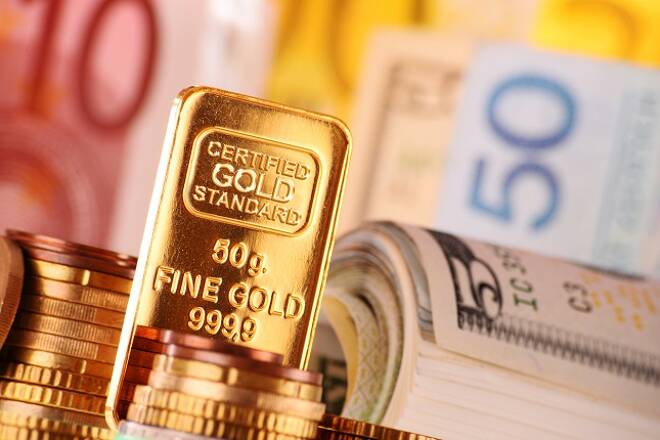Advertisement
Advertisement
Gold Prices Supported on High Geopolitical Risks, Negative Real Yields
By:
Gold traders retreated sharply at Asia’s trading session on Tuesday, as the greenback recorded some gains with global investors keeping a cautious eye on the U.S.-China escalations ahead of key trade discussions scheduled to hold on Aug. 15.
In the precious metal market, Gold has been pulling back from its recent record high because of the strong rebound of the dollar lately. Gold traders now seem to be closing some of the bullish bets, showing gold prices could drift lower to the $2,000 support level.
The greenback now looks to be the favored safe-haven asset amid rising tensions between America and China, triggering the U.S dollar Index, to surge near-one week in yesterday’s trading session.
Gold’s relative bullish run could be more challenging if the greenback shows signs of more strength coupled with US bonds yields surging higher on better than expected US economic data.
Traders are also focusing on stimulus talks ongoing at the U.S congress.
However, the yellow metal remains supported on the present high geopolitical risks around the world and potentially US fiscal package delays.
The yellow metal loves uncertainty, and there is plenty of that around the world while gold remains unquestionably supported by a high influx of geopolitical risks, monetary liquidity, and the recent deadlock in the U.S stimulus package.
In addition, negative real yields from emerged markets coupled with inflation, low-interest rates and most importantly the resurgence of COVID-19 have triggered the appetite for more stakes in the bullion asset.
Gold traders are aware that geopolitical uncertainty remains high, knowing the fact that President Trump is growing desperate as elections are just few months away, in the face of rising COVID-19 caseloads and a relatively fragile economy.
Gold prices could stabilized above the $2,000 level in the mid-term, if President Trump continues to lash out at China more aggressively by rolling the Phase 1 trade deal back and even adding more tariffs or economic sanctions like in the case of TikTok and WeChat.
For a look at all of today’s economic events, check out our economic calendar.
About the Author
Olumide Adesinaauthor
Olumide Adesina is a France-born Nigerian. He is a Certified Investment Trader, with more than 15 years of working expertise in Investment trading. He is a Member of the Chartered Financial Analyst Society.
Advertisement
